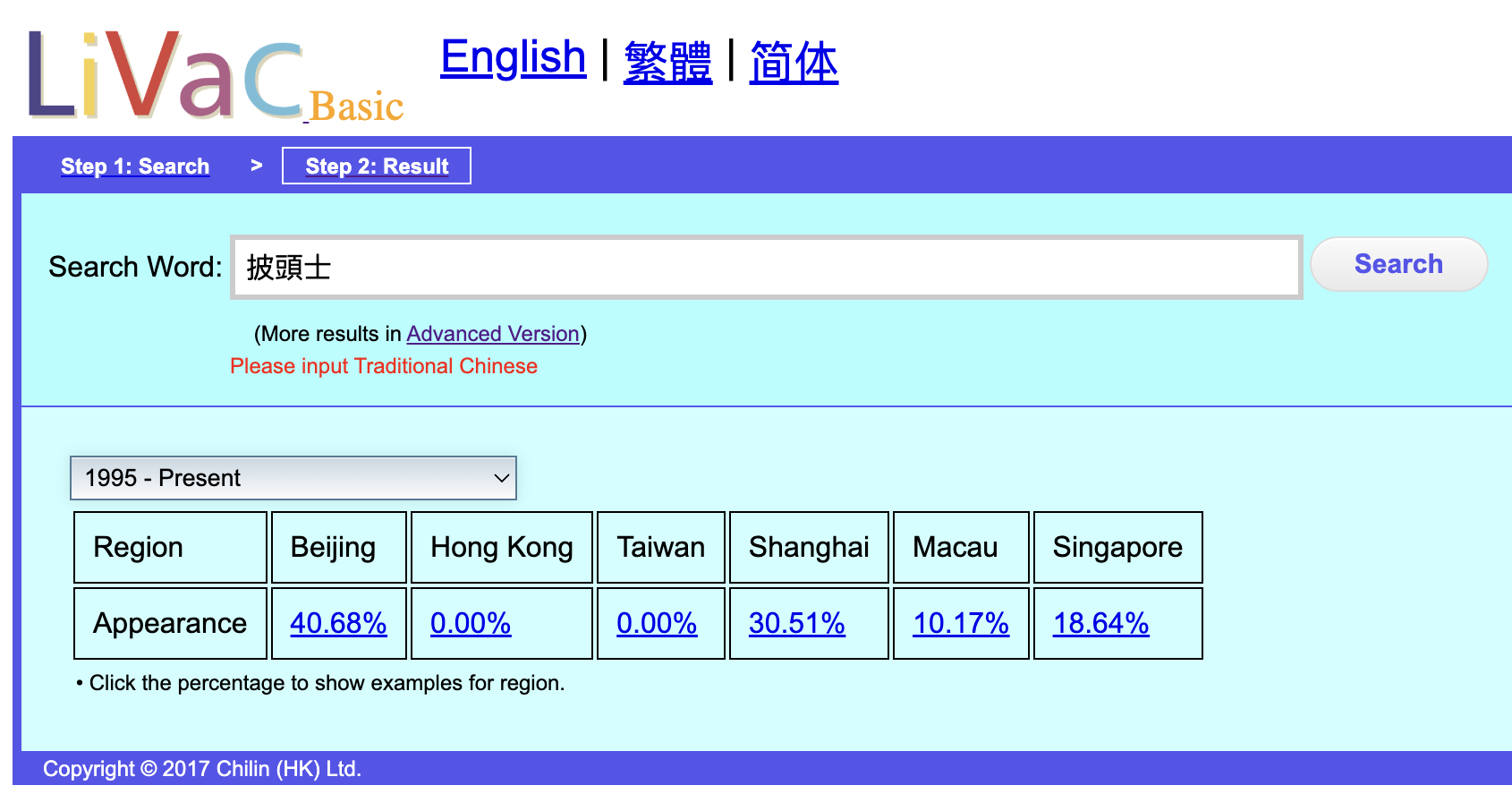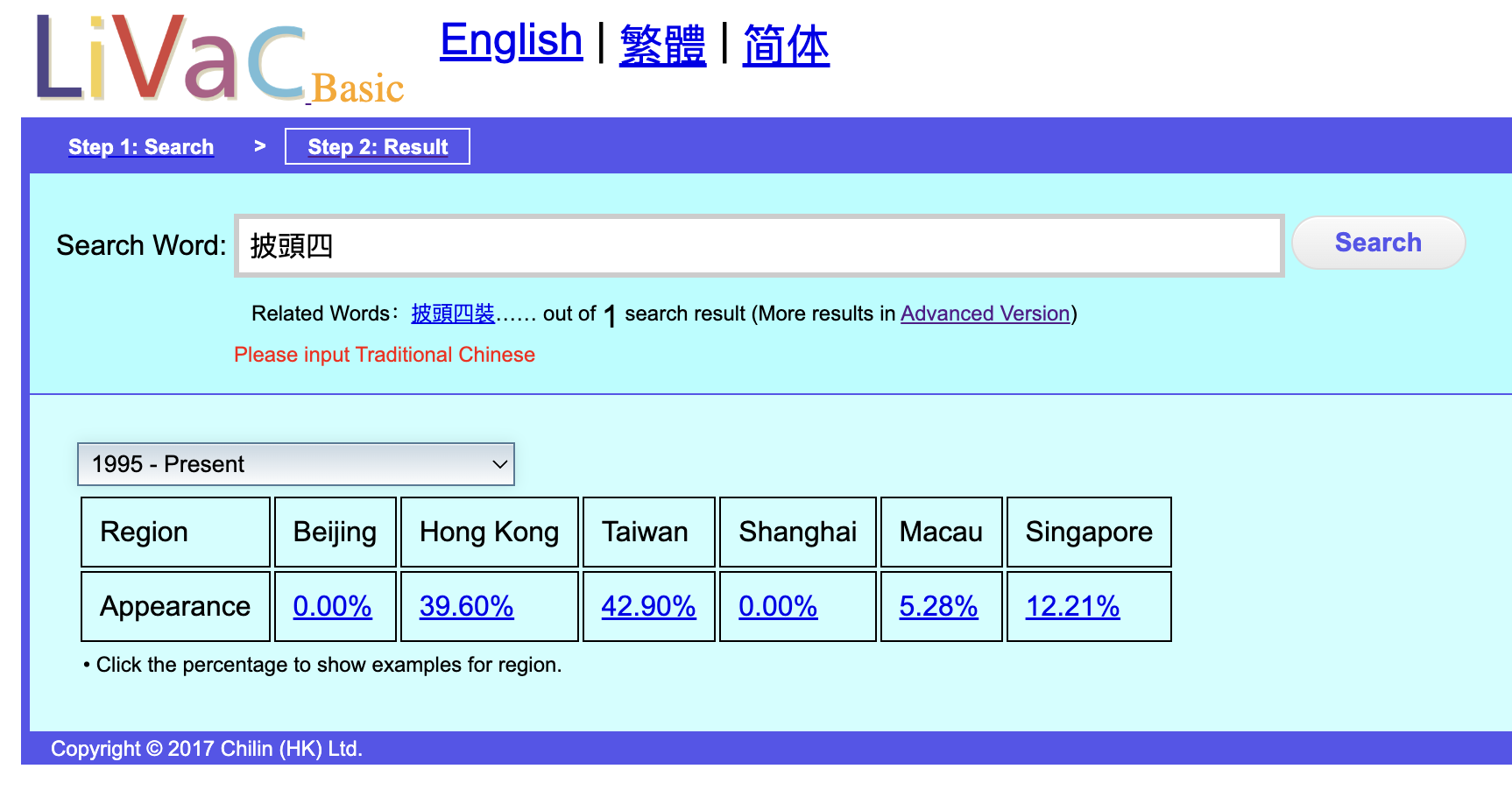A quick way to do this is to use Wikipedia's localization for Chinese:
If you want to widen the search a little:
The person in the video you provided does not sound like she is from Taiwan. She also employs the term 披头士 - which according to the above wouldn't be very "Taiwanese."
The YouTuber does use traditional characters in her video titles. This, assumedly, is probably what spurred your presumptions. The reason for writing the titles in this way is most likely due to the fact that YouTube is blocked in the mainland and the majority of Chinese speaking YouTube users are from Taiwan or other regions that use traditional characters as opposed to simplified characters.
Another cool tool:
LiVac has some really interesting demographic spread data. For instance lets look at 披头士:

Lots of hits in the mainland, nothing in HK or TW. Some minimal hits in Malaysia and SG.
Conversely we can look at regional information for 披頭四:

We can see quite the contrast. Zero hits on the mainland, but with big hits in HK + TW. And again, some minimal hits in Malaysia and SG.

